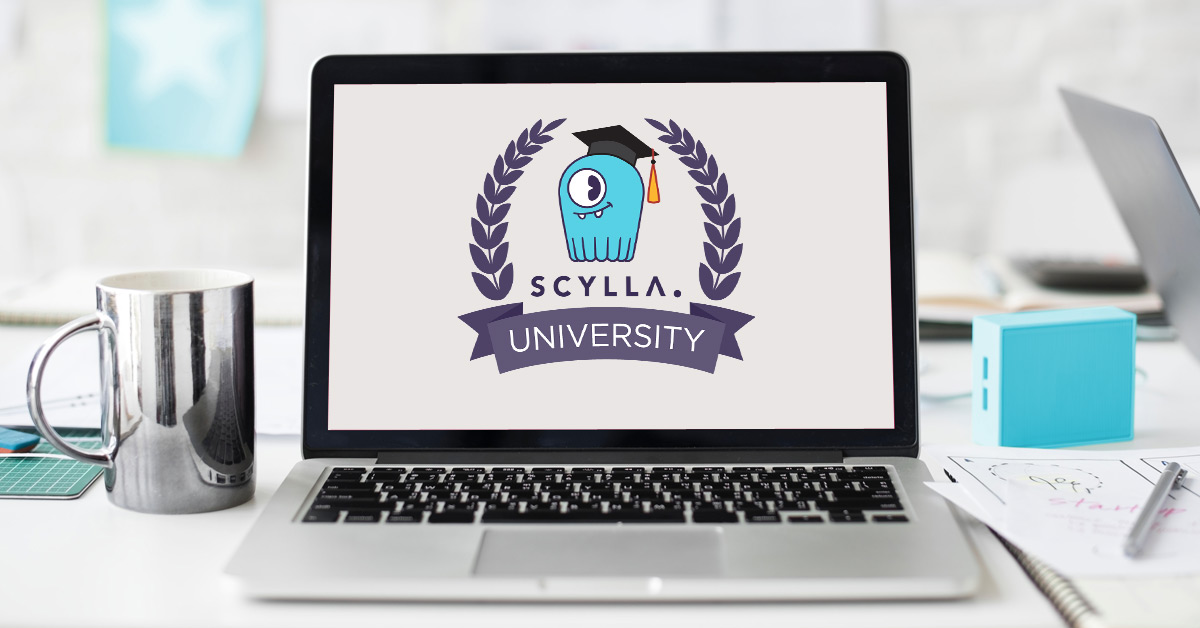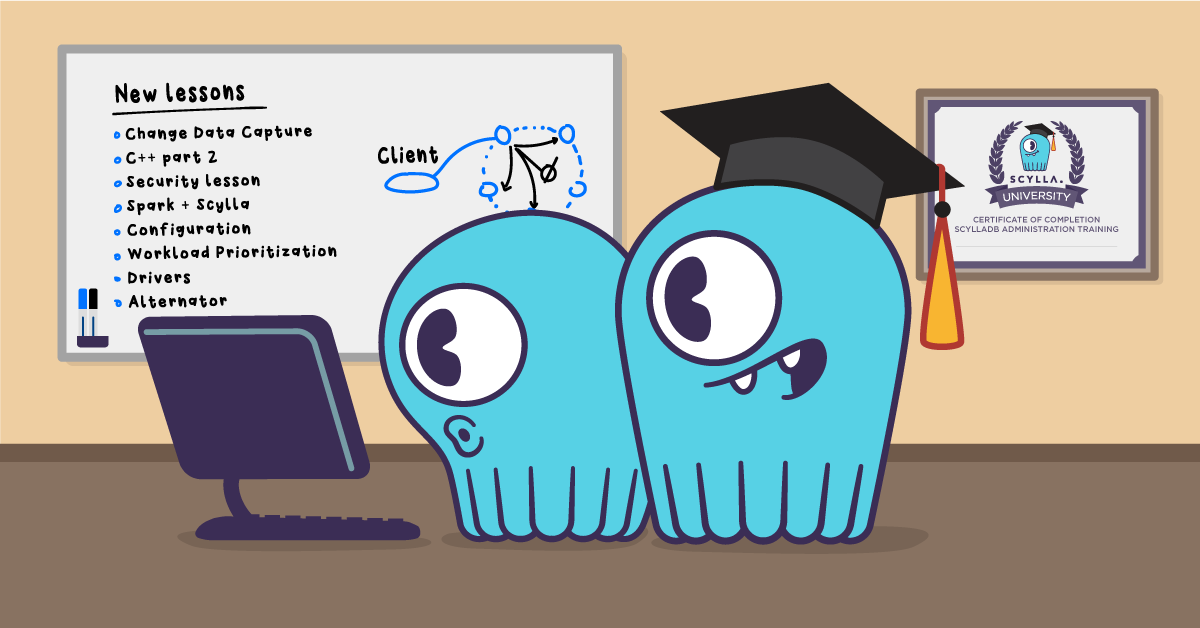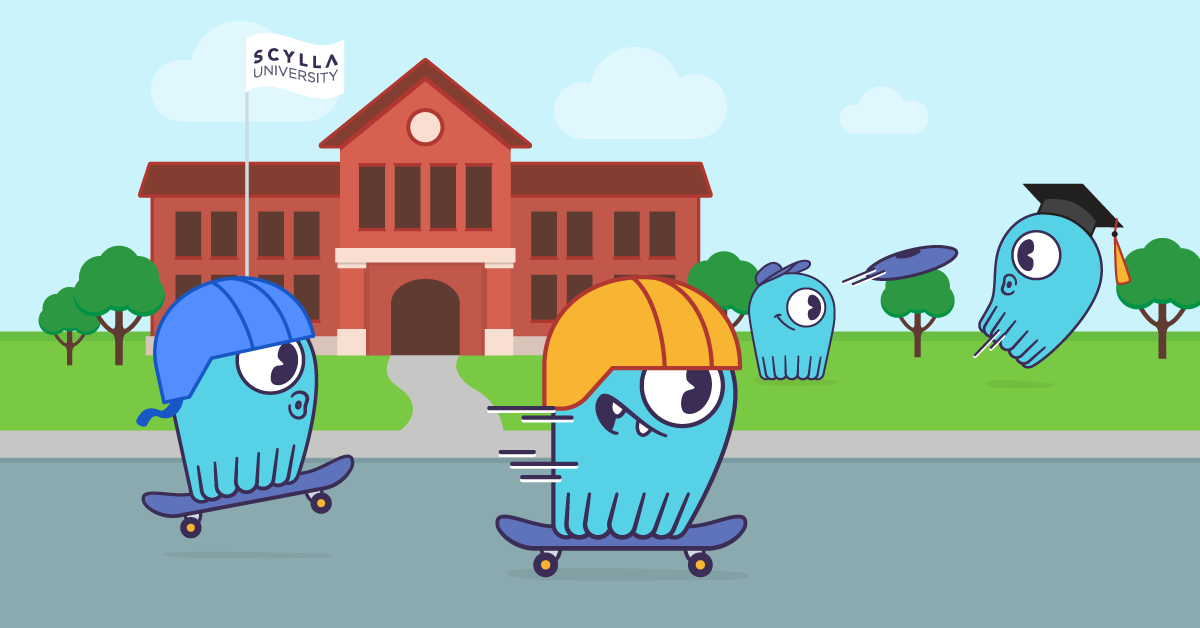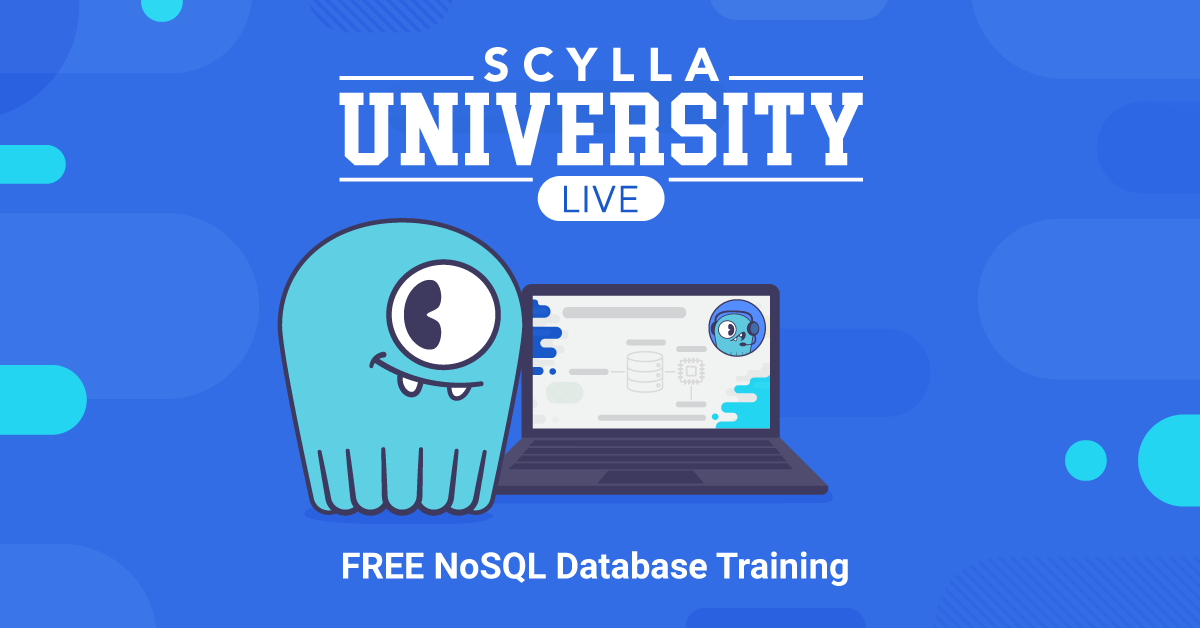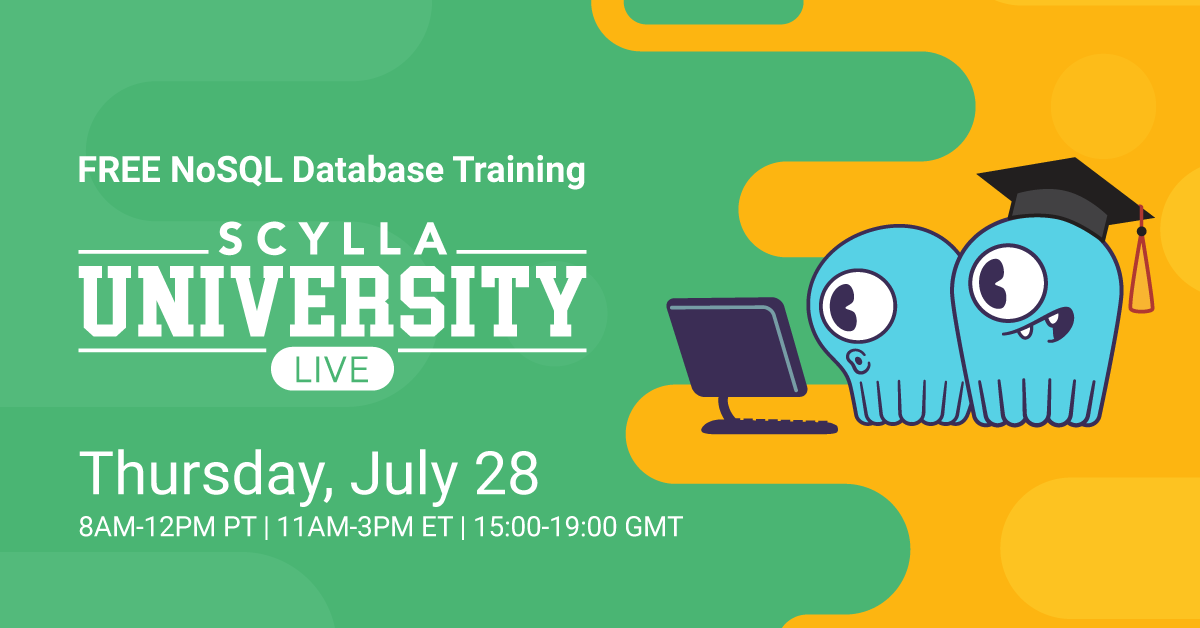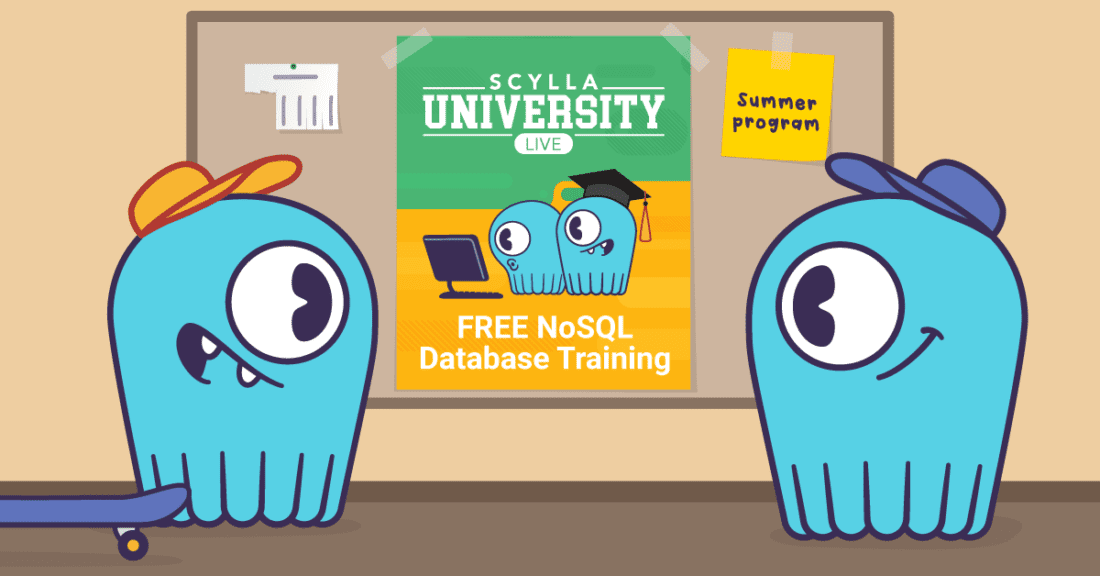
The upcoming ScyllaDB University LIVE event is right around the corner. In this blog post, I’ll share more details about the different talks and how you can prepare for the event to help you get the most out of your experience.
SIGN UP FOR SCYLLA UNIVERSITY LIVE
A reminder, the ScyllaDB University LIVE Summer School is a FREE, half-day, instructor-led training event, with training sessions from our top engineers and architects. It will include sessions that cover the basics and how to get started with ScyllaDB and more advanced topics and new features. Following the sessions, we will host a roundtable discussion where you’ll have the opportunity to talk with ScyllaDB experts and network with other users.
For the first time, we’ll host the live sessions in two different time zones to better support our global community of users. Our July 28th training is scheduled for a time convenient in Europe and Asia, while July 29th will be the same sessions scheduled for users in North and South America.
Detailed Agenda and How to Prepare
Here are the different event sessions and the recommended material you can use to prepare.
| Essentials Track | Advanced Topics & Integrations |
| Getting Started with ScyllaDB
This session covers the ScyllaDB architecture, its effects, what happens in a ScyllaDB cluster on a read and a write, partitioning of data in ScyllaDB, different concepts and components in ScyllaDB, and the basics of ScyllaDB data modeling. The session includes hands-on labs. Suggested learning material: |
Working with Kafka and ScyllaDB
This session will cover using our connectors to connect your ScyllaDB cluster with Apache Kafka. It will explore how to configure real-time ingestion of data from Kafka to ScyllaDB. Attendees will also learn how Kafka can consume the data changes happening in a ScyllaDB cluster. The session includes a live demonstration of configuring and running the connectors. Suggested learning material: |
| Advanced-Data Modeling
This session covers Advanced Data Modeling as well as other topics. The goal of the talk is to help the audience better understand ScyllaDB and write better applications. We will cover the topics: Materialized Views and Secondary Indexes, Advanced data types, Lightweight transactions, and tips and best practices. Suggested learning material: |
Spark and ScyllaDB: How do Spark and ScyllaDB work together?
This session covers topics such as: an overview of Spark and the ScyllaDB Spark Connector, How to connect ScyllaDB and Spark, How to approach full scans of your data, Effective loading and working with big data stored in ScyllaDB, An explanation of how your data is balanced between workers and executors, how to properly dimension a Spark cluster for your data set or use case, and a deep dive into mechanics behind data processing in Spark. Suggested learning material: |
| Building Well-Architected Applications on ScyllaDB Cloud
This talk covers architecture patterns for correctly building distributed applications on top of ScyllaDB. Using a demo, the talk will touch on: Idempotent writes, Properly handling failed writes, Retries, Read after write and consistency, Client-side timestamps and when to use them, Achieving high consistency and high availability with read/write split. Suggested learning material: |
Improve Your Application Using ScyllaDB Monitoring
ScyllaDB exports thousands of different metrics – that provide a complete picture of how well your hardware is set up and used, the current/historical state of the cluster, and how well your app is written. In this session, we will cover the essentials of using ScyllaDB Monitoring Stack to navigate this data and explain how to gain insights on the areas listed above. Suggested learning material: |
Swag and Certification
Participants that complete the training will have access to more free, online, self-paced learning material such as our hands-on labs on ScyllaDB University.
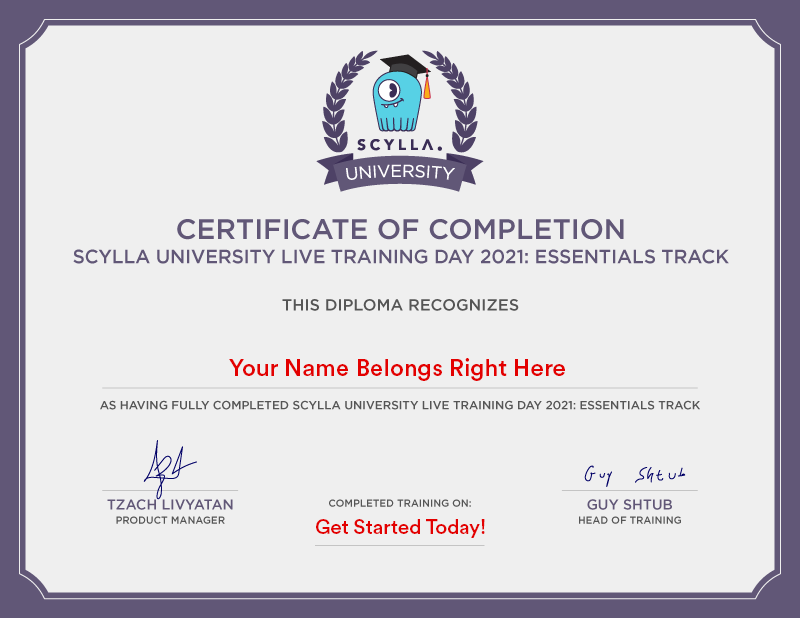
Additionally, those that complete the training will be able to get a certification and some cool swag!

